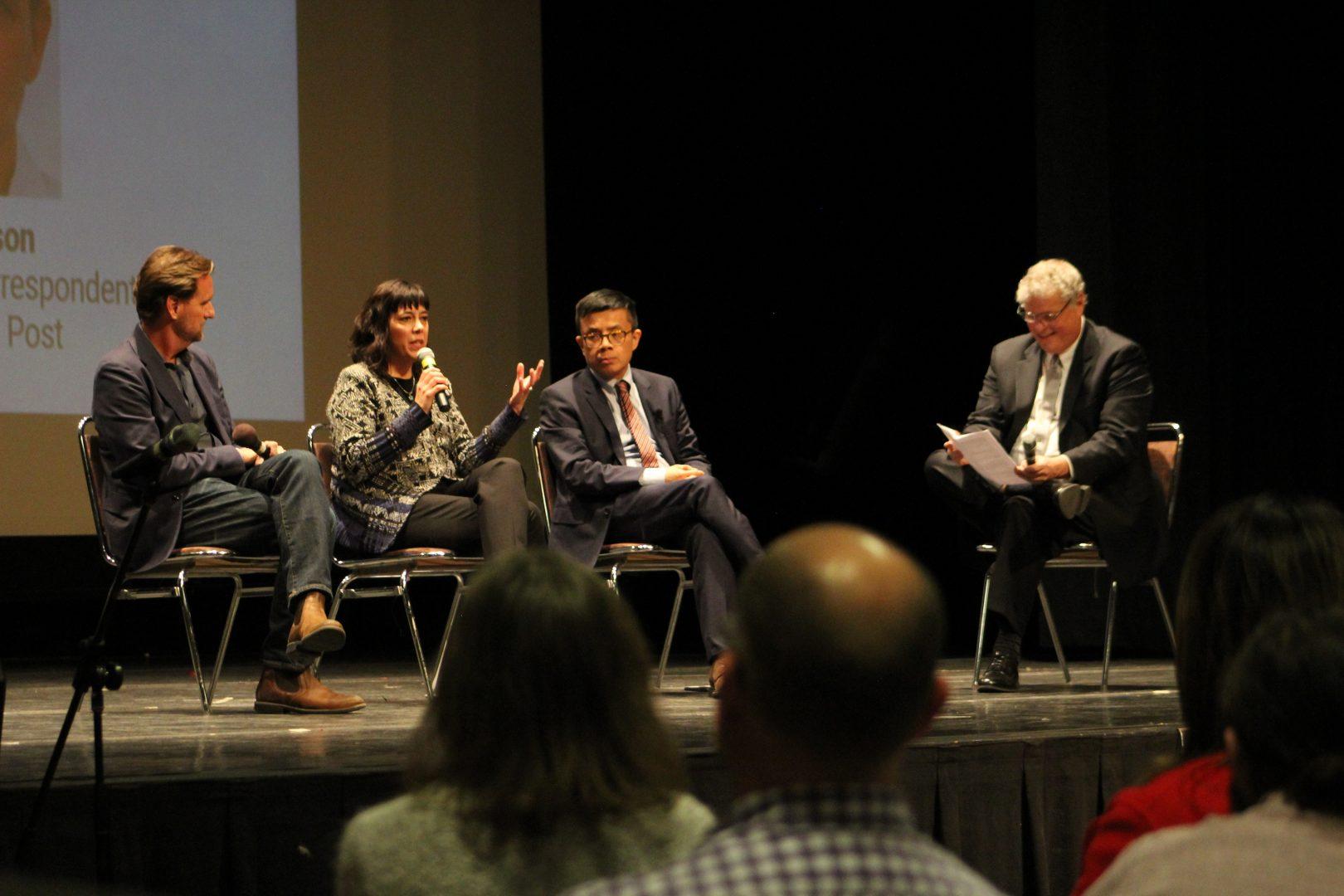ProPublica Editor-in-Chief Stephen Engelberg urged journalists and members of the media to be more forthright and transparent at the Roger Tatarian Symposium on Feb. 26 in Fresno State’s Satellite Student Union.
The topic of the evening was how the media can strengthen the trust of the American people in the “fake news” era.
The phrase once was meaningful stemming from its history in tabloids and outright falsity, but has come to mean any news source that does not align with President Donald J. Trump’s ideology, it said.
“I would retire the term ‘fake news’ entirely,” Engelberg said. He suggested the alternative should be “VD,” meaning “viral deception.”
ProPublica has tried to be more transparent about ethical or difficult decisions it has made regarding the more controversial topics covered, as well as addressing mistakes, Engelberg said.
“We need to be more forthright in acknowledging errors,” Engelberg said. “Honesty about mistakes will build confidence.”
By way of example, ProPublica published a 986-word explanation correcting a mistake that connected Gina Haspel with a waterboarding incident, he said.
“We in the media are trying to present a fair and objective account,” Engelberg said. “Be honest with readers and the public. This is actually a tough job, being a reporter.”
Following Engelberg’s speech was a panel discussion led by Tatarian chair Tim Drachlis.
The panel included Washington Post senior national correspondent Scott Wilson, The Associated Press northern California news editor Juliet Williams and Los Angeles Times deputy managing editor Sewell Chan.
The panel discussion lasted an hour, touching on topics including how to help readers understand the nature of what they are reading and be more upfront about the differences between news, news analysis, opinion pieces and editorials.
Williams explained that part of her job is to monitor what her reporters are posting to social media.
“It (social media misuses) absolutely hurts your credibility as a journalist, and it takes much longer to get it back,” Williams said. “You have to walk a very fine line.”
The larger issue facing the media is not a matter of right versus left wing coverage, but is more subtle than that, Chan said.
The media needs to include coverage representing class diversity, manual labor workers, community college attendees and inland areas, Chan said, not just coastal elites.
In regards to not covering all of the “outrageous things said by powerful people,” as Chan put it, both Williams and Wilson said it is absolutely their job to report it all.
“You can’t ignore what the president says,” Williams said.
Wilson agreed and said, “I’m not the journalism police. I’m not in the business of not telling people things. I’m not in the business of withholding.”
The next event, titled “Science Journalism in the Age of Mistrust,” will be held on April 9 at 6 p.m. in the Peters Educational Center. Keynote speaker and Pulitzer Prize winner Deborah Blum will be accompanied by a panel of writers, science journalists and scientists.




